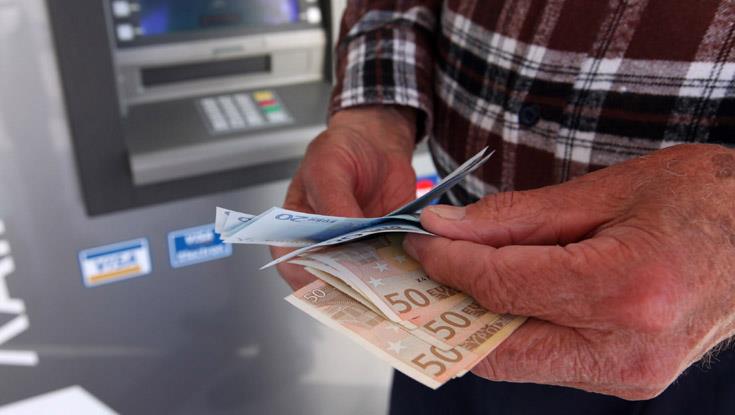Cyprus banks deny accusations that despite excess liquidity of €21.7 bln, they are hesitant to redirect the cash flow back into the capital-starved economy through lending to new and existing businesses.
Banks have seen their liquidity to loans ratio rise as deposits increased amid the improved macroeconomic environment, particularly low lending rates.
But they are refraining from lending money, claiming the lack of promising new projects and the high risk still prevailing in the market.
According to Central Bank data, Cyprus banks have excess liquidity of €21.7 bln, with deposits having increased in 2021 by €3.13 bln.
Economists argue that banks cannot easily convert deposits into loans due to strict credit criteria or low demand from households and businesses despite high liquidity levels.
In comments to the Financial Mirror, Bank of Cyprus Financial Research director Ioannis Tirkides argued that banks are not holding back from giving out new loans on a whim, as holding on to high liquidity is costly.
“Banks have unjustifiably come under criticism, accused of holding on to excess liquidity instead of channelling it towards new investments to help put the economy back on track after being derailed in 2013 and more recently with the coronavirus pandemic,” said Tirkides.
He argued that the value of new loans by Cyprus banking institutions in 2021 has increased even within this negative environment.
“Total new bank loans in Cyprus increased by 22.2% in 2021 compared to the previous year, coming close to the levels of pre-coronavirus 2019.”
According to the Central Bank of Cyprus (CBC), new loans in 2021 reached €2.9 bln, up from €2.4 bln in 2020.
New loans to households increased by 29.8% compared to 2020, amounting to €1.39 bln from €1.07 bln, while new business loans increased 16.1% to €1.5 bln from €1.3 bln in 2020.
“It is true, however, that banks are more careful in giving out loans, especially to new businesses.”
Business loans dropped by 12.5% from 2019.
“However, giving out almost €3 bln in new loans every year is not to be disregarded. This is equivalent to 15% of the country’s GDP.”
Until the coronavirus crisis, the economy recorded a growth rate between 3% to 6% in the past five years.
“It is generally accepted that Cyprus’ growth in recent years can be at least partially attributed to funding from the banking institutions.”
Tirkides argued the big gap in the credit to liquidity ratio has more to do with the lack of viable and profitable new projects than the banks not wanting to give out loans to new companies, but the criteria are tougher.
“It is not in the banks’ best interest to hold on to cash.
“Any surplus is deposited with the European Central Bank with a negative interest rate of 0.5%.”
He explained that since mid-2014, the ECB adopted negative deposit rates due to low inflation and sluggish growth, which has worsened due to the COVID pandemic, introducing negative interest rates.
Negative environment
Economist and former MP Anna Theologou said one needs to consider the sluggish investor confidence.
“It is no secret that there is a lack of demand for loans from business projects, as the times do not favour new investments,” said Theologou.
“The unfavourable investment environment created following the demise of the Cyprus Citizenship for Investment scheme and coronavirus has led investors to choose to have their money sitting in banks rather than investing it.”
Theologou said investors’ low confidence has them preferring to park their money in a bank, even at the cost of a negative interest rate.
High private debt is also another negative factor for businesses.
“If an investor is already in debt, following the crisis of 2013, they will be hesitant to put more debt on their shoulders, especially under current conditions.
“The unfavourable investment conditions are also a turn off for banks, who are on the lookout for viable projects to fund.
“If banks do not think that a business idea can overcome the negative financial environment, they will simply not invest in it.”
Theologou argued that the market would have to return to pre-coronavirus conditions for things to get better, with consumers regaining their confidence, shaking off their hesitancy.
Despite state guarantees worth €1 bln for coronavirus-hit businesses, firms are still hesitant to come forward and ask banks for funding.
“They feel insecure in the current environment to make openings, as they know that their chances of increasing their turnover are slim amid the pandemic.”
Only half of the €1 bln approved for COVID support has been lent out.
The legislation provides state guarantees with low interest to cover loans given by commercial banks to businesses and self-employed.
University of Cyprus economics professor Sofronis Clerides said after the 2013 banking crisis and the bailout from international lenders, there were fears of insufficient liquidity to finance the recovery.
“This was not the case.
“We saw liquidity increasing even during the first years following the crisis.
“However, since the crisis, banks have toughened criteria, quite rightly, tightening their lending hand,” said Clerides.
He noted banks have always been conservative institutions, especially when it comes to lending.
“I would say that an even larger problem faced by the Cyprus economy is the lack of alternative funding vehicles, other than commercial banks.
“Currently, this cannot be done as there are no equity funds or venture capital active in the market.
“Alternative funding sources are needed in the sense that someone, the state, international investors will need to come in to fund these companies by providing equity funding.”
The economist said the government could step in with creating equity funds, which will inject cash into capital-starved businesses and start-ups.










